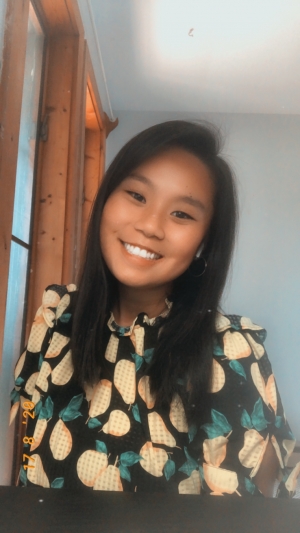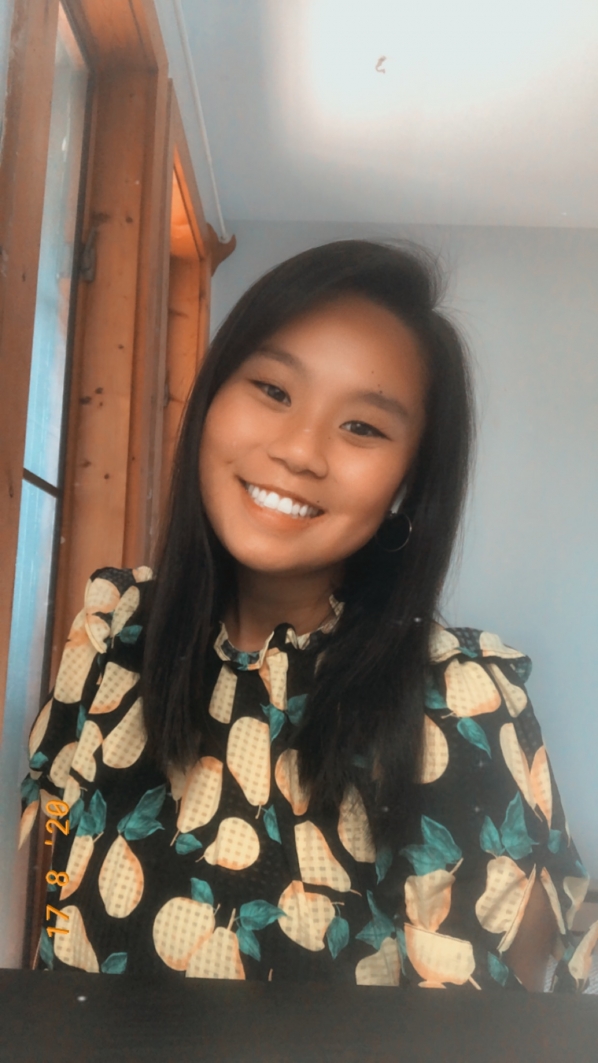The Reich College of Education’s (RCOE) James Center for Student Success and Advising is spotlighting a few of our women education majors as part of Women’s History Month.
Read to learn more about senior elementary education major Jordan Dennison. She is originally from Asheville, North Carolina, and her academic concentration is in diversity studies.
"As a teacher, I am a mathematician, a scientist, a historian, and a provider."
What are some of your interests (personal, professional, and/or academic)?
Being a teacher is my life's calling, but I am also super duper into music and reading. I have two older sisters, one of whom is also a teacher! Listening, playing, recording, composing, you name it I've tried it. Several members of my family are musicians, and I think that's where I discovered my love for music. I definitely foresee myself integrating music in my classroom because not only is it cathartic, but it can also tie into some content standards.
What are your plans for after graduation?
Post-graduation I will continue my work in the reading education masters program at Appalachian State University so I can become a reading specialist.
Which woman has been a major influence in your life?
A woman that has been a major influence in my life is Mia Hamm. Growing up, I was a huge soccer player, and I ended up playing for about ten years. I remember the feeling that engulfed me when I read her story. She was a pioneer for women in sports, but specifically women in soccer. She is a two-time Olympic gold medalist and a two-time FIFA Women's World Cup champion. Listening to her story and how she had this natural ability to lead spoke to me. I knew I was never going to be a professional athlete, but a leader...that I can do. To me, there are a lot of common values I hold between teaching and sports: leadership, collaboration, communication, and hard work.
Can you share some personal experiences unique to your experience as a woman educator?
I think I do come from an uncommon position because I am Asian-American teaching in the south. When I was in elementary school, there were maybe two other Asian-American students, and I have to say that it was hard trying to understand why that was. My parents were very clear about my adoption process, and that I was probably going to be different than my peers, but they also said that sometimes people might not understand my situation. Having the lack of representation in the student body has caused me to advocate for people of color and talking about what it means to be different. I believe that education is elevation, and I plan on implementing that philosophy in my classroom.
What do you see as specific challenges that women educators face?
I feel like being an elementary school teacher has been feminized to the point where people think it's "cute" to be a teacher. I believe that this is a real misconception about what it means to be a female educator, and debunking that myth is the first step to a more level playing field. Encouraging the stereotype that women are only needed in caregiving situations is problematic. As a teacher, I am a mathematician, a scientist, a historian, and a provider. Teachers, but women specifically, have to wear so many hats that are complex and oftentimes underestimated. To reverse this ideology, I think higher pay for educators alike needs to be delivered so we are taken more seriously.
How are you making history as a woman educator, and/or how would you like to?
I am not the first, nor will I be the last, Asian-American female teacher. I want to work really hard at making the most change so I can pay it forward to the generation of teachers after me. I want people to understand that the narrative for teachers is changing. The trajectory in which women become educators is way more rigorous than it used to be. I would like to change the hearts and minds of people who don't know what it means to be a teacher.

